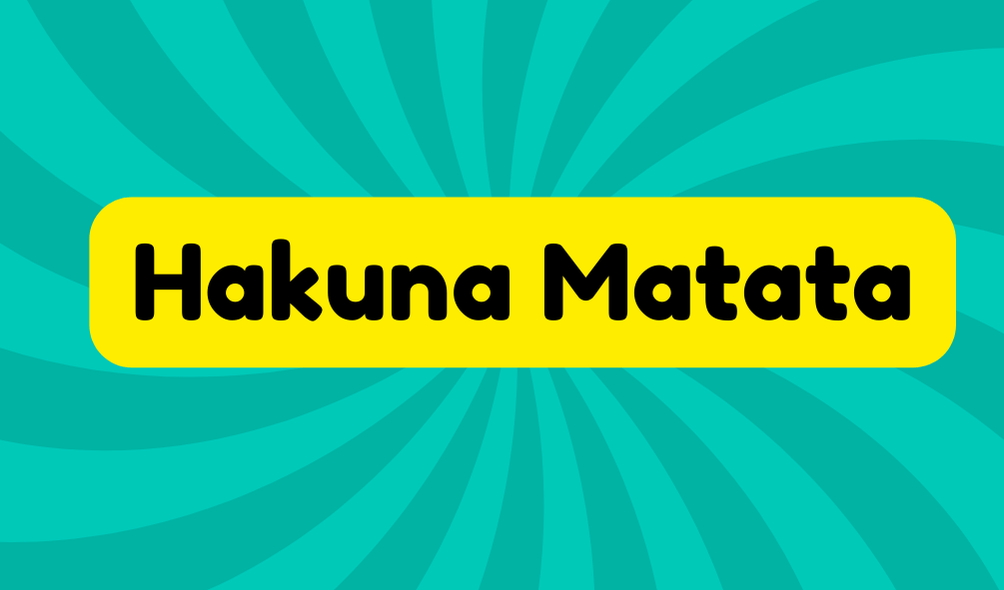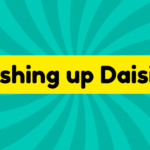"Hakuna matata," a Swahili phrase meaning "no worries," encourages a carefree attitude, but it carries more than just lightheartedness. Originating from East Africa, it reflects a deeper philosophy about living without stress and fosters community, though commercialization has complicated its authentic usage. You might hear it in pop culture, especially after Disney popularized it in the 1994 film "The Lion King." While adopting this mindset can help you tackle life's challenges with optimism, it's essential not to ignore real issues. Understanding its true meaning and significance can enhance your perspective on stress and well-being. There's much more to uncover.
Synonyms
When you think of "hakuna matata," several synonyms come to mind that capture its essence of worry-free living. These terms all reflect the ideals of peaceful living and stress relief, which many seek. Here are a few synonyms that resonate:
- Carefree – A state where troubles feel distant.
- Easygoing – Embracing a relaxed approach to life.
- Laid-back – Not allowing stress to dictate your pace.
- Untroubled – Living without the weight of worries.
While these phrases may sound ideal, it's crucial to remember that the journey to a truly relaxed mindset often involves recognizing and managing stressors. It's not just about dismissing problems but learning how to create a better mental space. Embracing "hakuna matata" requires a realistic approach, too.
Example of Sentences
Embracing a "hakuna matata" mindset can transform how you approach everyday challenges. This phrase, with its cultural significance, emphasizes living without stress and anxiety. Here are some example sentences you might use:
- "When you're feeling overwhelmed, remember to think hakuna matata."
- "You'll find more joy in life when you adopt a hakuna matata attitude."
- "In a world full of chaos, it's invigorating to just say, hakuna matata."
- "As you navigate tough situations, let hakuna matata be your mantra."
These examples highlight the effectiveness and practicality of this mindset. Still, it's important to remember that ignoring problems won't make them vanish. Acknowledging challenges, while maintaining a carefree attitude, is essential for personal growth.
Origin
The origin of "hakuna matata" traces back to Swahili-speaking communities in East Africa, where it embodies a philosophy of living without problems. Its cultural significance is profound, often linked to the Ubuntu philosophy, which promotes community and togetherness. The phrase underwent linguistic evolution as it crossed borders, entering popular culture largely through the 1982 song "Jambo Bwana" by the Kenyan band Them Mushrooms. While it conveys a lighthearted approach to life, it's important to recognize the complexities behind such simplifications. When Disney trademarked it in 2003, controversy emerged over its cultural roots and commercialization. This raises an essential question: can you truly own a phrase that's embedded in a rich heritage? It's worth pondering.
Collocations
Collocations associated with "hakuna matata" highlight its versatile usage in everyday language. While you may hear it often in light-hearted contexts, understanding its deeper implications is important. Here are four notable collocations to reflect on:
- Hakuna matata mindset
- Hakuna matata attitude
- Embrace hakuna matata
- Living the hakuna matata philosophy
These phrases reflect how "hakuna matata" influences thinking and behavior. Its usage suggests a carefree approach but also raises questions about the philosophy's significance. Are we truly promoting a worry-free life, or are we overlooking real issues? Recognizing the balance between carefree relaxation and addressing life's challenges becomes essential. So, while embracing this popular phrase, make sure you stay grounded in reality.
How to Use in Everyday Language
Incorporating "hakuna matata" into your everyday language can bring a revitalizing perspective to daily conversations. This phrase is perfect for casual conversation, helping you communicate an easygoing attitude. When life throws challenges your way, saying "hakuna matata" serves as stress relief, reminding you not to dwell on problems. For instance, you can use it when someone frets about minor issues, saying, "Hey, hakuna matata! It'll work out." However, don't overuse it; it might lose its charm and impact. Realistically, life can be tough, and pretending nothing's wrong isn't always practical. Use this phrase wisely, blending it with genuine discussions. Balance is key—let "hakuna matata" lighten your conversations, but stay grounded in reality.
Why Is It Still Relevant Today?
Today, "hakuna matata" resonates with many because it embodies a much-needed philosophy in our fast-paced, often stressful lives. Its cultural significance stretches beyond its catchy melody; it serves as a reminder to embrace simplicity amid complexity. In modern applications, you might hear it in conversations about mental health or during tough times when prioritizing well-being becomes essential. Yet, one must question if this carefree mindset risks oversimplifying serious issues. While it's tempting to adopt "no worries" as a mantra, acknowledging challenges is equally important. So, while "hakuna matata" encourages stress relief, it's imperative to blend this outlook with realistic strategies for problem-solving. Balance is the key; after all, true innovation thrives not just on optimism but also on confronting reality.







